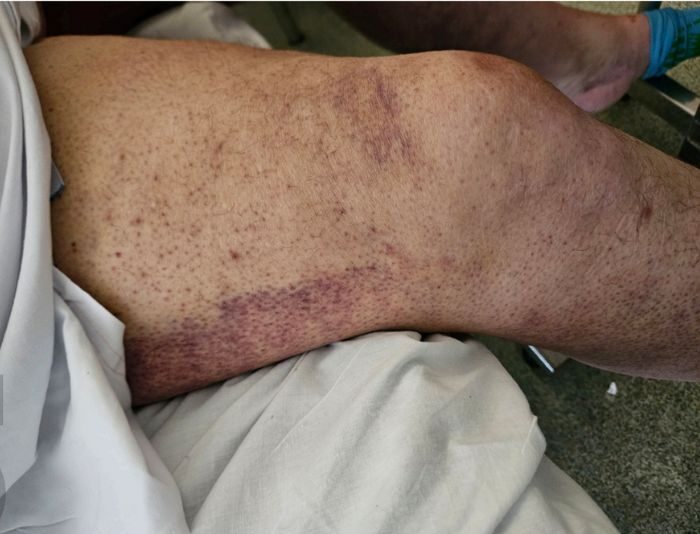A illness related to sailors in a bygone period is rearing as soon as extra from the depths of historical past in developed nations. In a latest stark instance, a middle-aged Australian was recognized with scurvy.
The person sought hospital take care of a painful rash on his legs that was accompanied by bruising and swelling. The medical doctors at Sir Charles Gairdner Hospital dominated out infections in addition to inflammatory, immune, and blood issues.
It wasn’t till doctor Andrew Dermawan and colleagues questioned the affected person additional, days into his hospital keep, that the medical specialists found monetary difficulties had impacted the person’s food regimen.
Scurvy outcomes from an absence of vitamin C. With out enough quantities of this very important nutrient, wounds cease therapeutic correctly, and capillaries and gums begin to bleed resulting in lack of circulating blood cells.
The 50-year-old man had early indicators of deficiency, with low white blood cell counts and blood in his urine regardless of not having any present urinary an infection.
Such physiological adjustments can result in weight reduction, joint swelling, bodily weak point, despair, and eventual threat of deadly bleeding.
It solely takes about 4 weeks of lower than 10 mg/day of vitamin C for signs of scurvy to emerge. Fortunately remedy is easy, and the affected person made a speedy restoration quickly after he began taking 1000 mg of vitamin C together with different prescribed dietary supplements.
The person’s blood take a look at revealed low ranges of a number of nutritional vitamins and no traces of vitamin C in any respect. He had additionally ceased taking dietary supplements prescribed after bariatric surgical procedure as a result of he could not afford them.
“Our patient had multiple risk factors, namely, poor dietary habits, obesity, previous bariatric surgery, use of proton pump inhibitors and low-income status. His history of iron, vitamin D and folate deficiencies were also clues to his underlying nutritional deficiency,” Dermawan and staff clarify.
Different threat elements for scurvy embody consuming issues, smoking, alcoholism, steroid use and kidney issues.
Whereas this is just one instance, there have been regarding indicators this situation is returning to developed nations for a while now. Circumstances greater than doubled within the UK between 2007 to 2017.
“Scurvy is a re-emerging diagnosis in the current era of a rising cost of living,” Dermawan and staff warn of their case report.
With meals rising in worth by round 3 p.c in Australia and practically 6 p.c over the previous 12 months in locations just like the UK, an rising variety of individuals across the globe on low incomes are being pressured to make powerful choices to get by.
“The increasing cost of living means that people are more reliant on lower-cost foods, which tend to be poor in nutritional value,” the staff’s report continues.
These low nutrient meals are likely to really feel extra filling and have a excessive calorie content material, so it is smart that individuals combating tight budgets can be extra more likely to depend on them. What could also be much less well-known is that overcooking meals destroys vitamins like vitamin C, making entry to uncooked fruit and veggies vital for sustaining the sources our physique must operate correctly.

Extra widespread ranges of vitamin C deficiencies have additionally been linked to troubles with reminiscence and making choices in older individuals. A 2022 research discovered vitamin C deficiency was related to cognitive impairments.
“Previous research has shown that vitamin C plays a significant role in the functioning of the brain, with studies finding that vitamin C deficiency may be associated with cognitive impairment, depression and confusion,” Flinders College doctor Yogesh Sharma mentioned on the time.
“Given we know vitamin C deficiency is common among older hospitalized patients, medical professionals need to remain vigilant for this condition and confirm a patient’s vitamin C status in suspected cases.”
This case research was revealed in BMJ Case Experiences.

